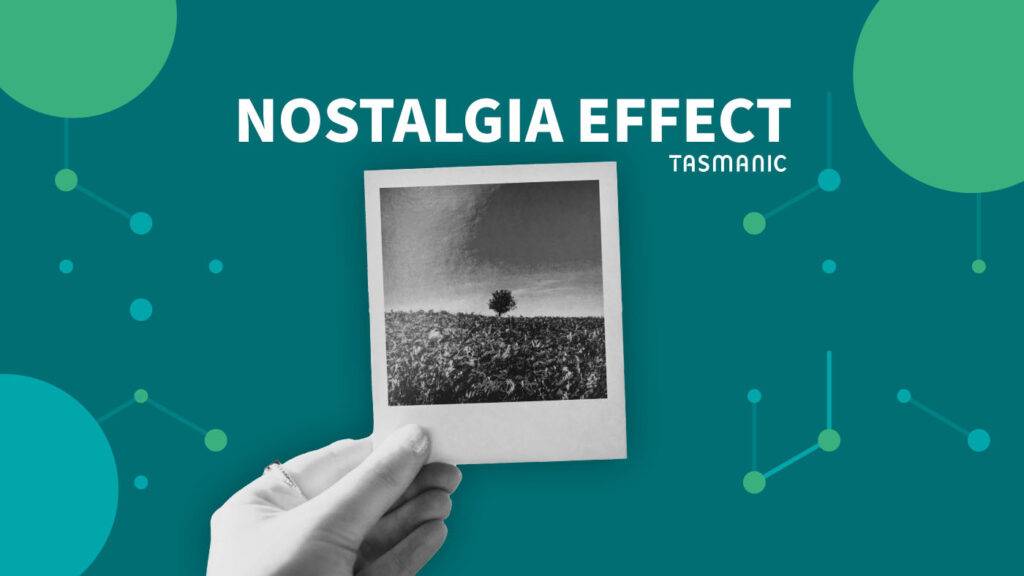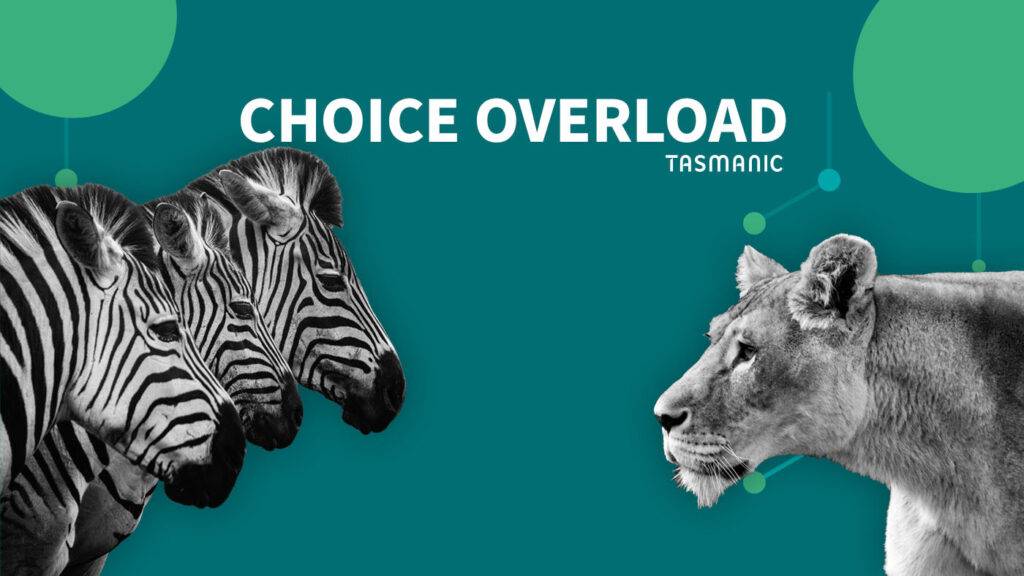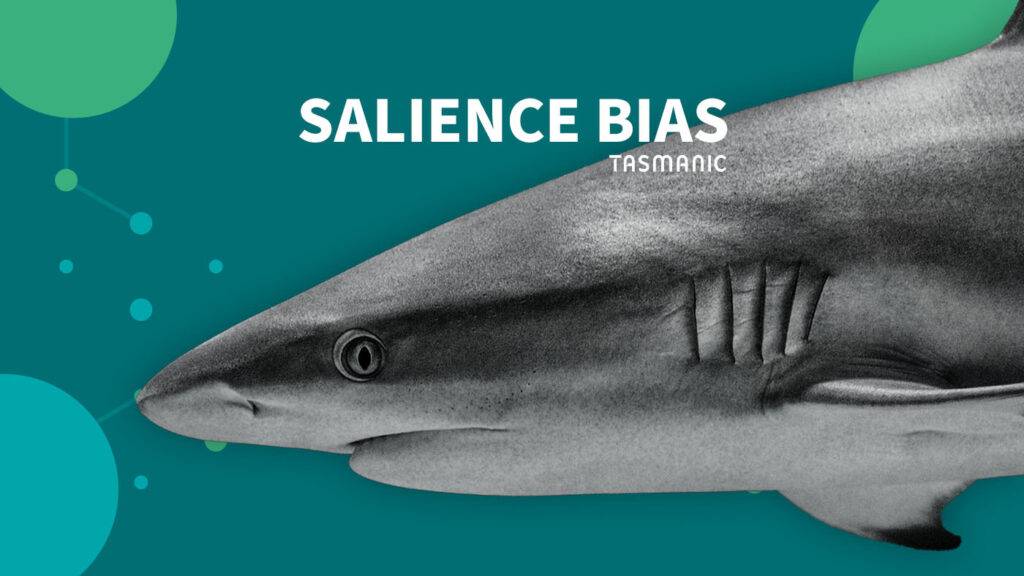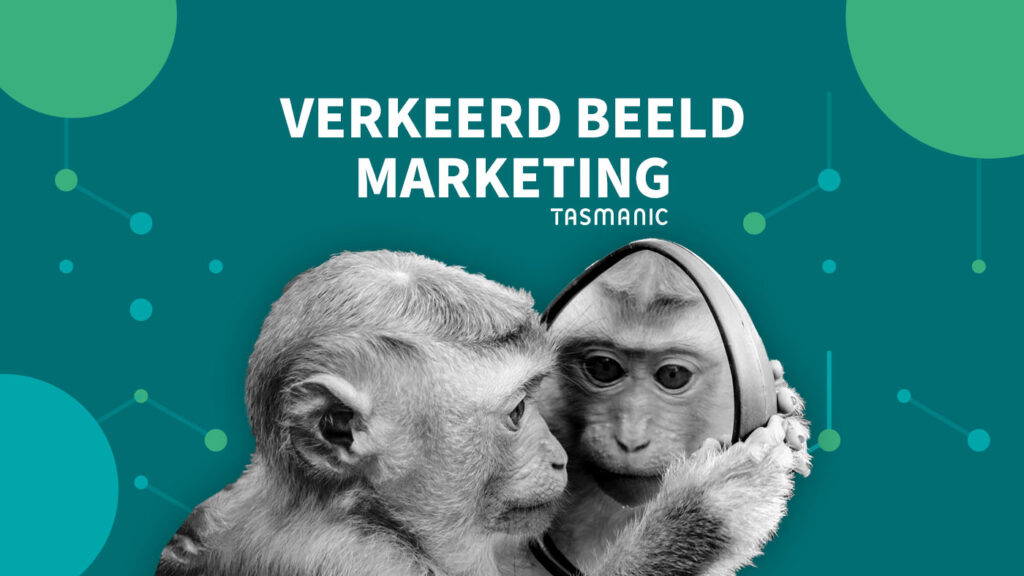
Last updated June 20, 2023
What is the misunderstanding?
There is still a tremendous amount of nonsense about marketing. Terms and definitions abound, not to mention the continuous mush of hypes. Especially in the last 10 years, the fence has completely dropped. As a result, many a company or organization misses opportunities. While it is actually quite simple. All you need is patience and thorough research. Not sexy, but crucial. Tasmanic is an agency that helps you separate the wheat from the chaff.
What is marketing again?
There are still hordes of people - even with marketing in their job titles - who confuse marketing, communications and media. For consumers, marketing is often (bad) advertising. For professionals, digital and online are on the tip of the tongue. To them, marketing is online marketing. But online is just one of the channels or media to reach people. So first, let's take a look at the definition of marketing according to the AMA, the American Marketing Association:
Marketing is the activity, set of institutions, and processes for creating, communicating, delivering, and exchanging offerings that have value for customers, clients, partners, and society at large.
So marketing is not communication
For most people, marketing is the advertising or promotion they see. But that is only the communication. In fact, marketing is mostly that which precedes that communication. Those are: analysis, strategy and tactics, the tactical implementation of that strategy. So: research and data to uncover still unknown insights. A strategy that creates and positions the market, brand, product(s) and/or service(s), based on the data found. And a tactical plan to carefully test, adjust and creatively execute this through the best scoring communication channels.
Online marketing falls under the P of Promotion
That online has become so big among marketers is certainly also due to its fantastic measurability. Lord Leverhulme of Unilever once exclaimed, "half my advertising money is wasted, I just don't know which half." With online, that problem is much smaller. As a result, it is in the spotlight and seems the most important. But online marketing simply falls under the classic P of Promotion. At Tasmanic, we realize this all too well and keep a close eye on our role in the overall classic marketing mix of the 4 P's Product, Price, Place and Promotion.
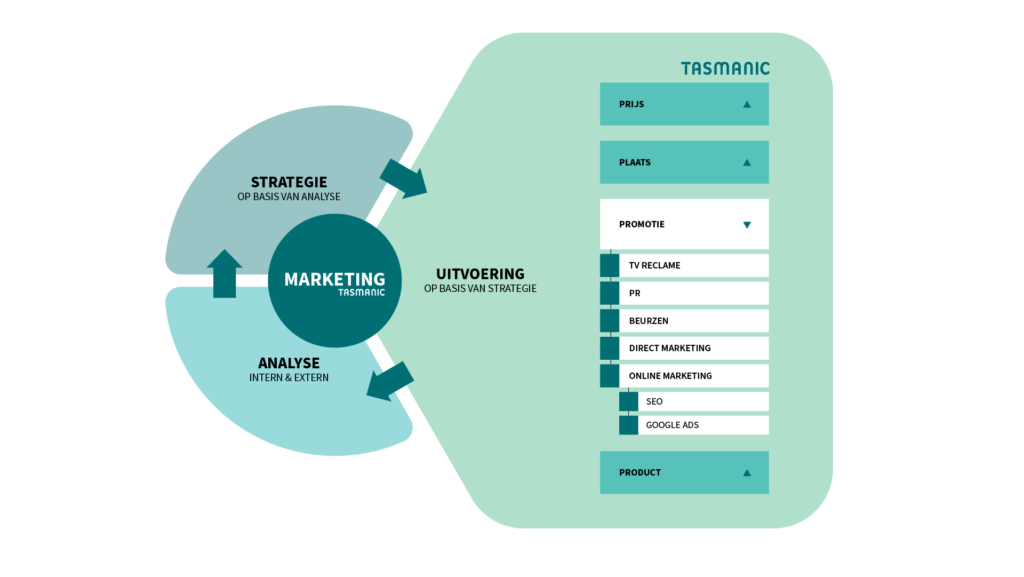
So where does it go wrong?
Real marketing work is not at all fast and hip. It requires patience, endless research, searching for significant things and insights. But everything these days has to be now, now, now. Also, marketers are drowning in the mush of resources and media and so-called types of marketing they can use: from influencer marketing to viral to guerilla, from content to keyword to relationship marketing. And oh yeah, there's also radio and TV, outdoor and print. It's also tempting to run after all kinds of self-proclaimed marketing gurus or deploy new techniques and channels immediately without thorough and critical research.
What about online marketing?
Online marketing is actually not a good term. After all, online is just one of the media channels to reach people. The fact that all kinds of things are then possible within online and everything changes every so often makes it all the more confusing. But of course you can't ignore online these days. It is only good to realize that online is a medium that must be part of a larger marketing plan in which the various channels are deployed with integrated tactics.
Integrated campaigns: 57% more effective
That an integrated media strategy works, global research by research firm Kantar Millward Brown shows. Kantar Millward Brown is a leading global research firm for marketing and branding. A well-integrated communications campaign across multiple media channels is 57% more effective than campaigns that are not integrated. That same research shows that companies are still missing plenty of opportunities in creating consistency and synergy across media channels. Many marketers think that the strategies of their campaigns fit well together. But the target audience often thinks otherwise. It therefore requires a great deal of expertise to really integrate campaigns effectively and deploy them coherently.
Never sleep, marketing as a continuous data-driven process
Marketing is not a project; marketing is a process that is never finished. It is important to continuously evaluate marketing activities based on data. Data should guide choices and further optimization of campaigns. For online, think about improving SEO, optimizing Google Ads or adjusting the content approach. Data also provides insight into which (online) channels are profitable and which are not. This ensures better choices and increasingly better results.
Reaching the right people, at the right time and with the right message: the premise of marketing doesn't sound all that complex. But to reach potential and existing customers, convert leads into sales and thus achieve business goals, a hefty dose of insight, data, strategy and creativity is indispensable. Why the emphasis on data? Man as homo economicus, as acting rationally, does not exist. Yet economists often still assume this. In fact, much behavior is irrational. Good marketing research gets this to the surface.
Is your company missing opportunities?
Our pay is based on your results.

















 Team
Team FAQ
FAQ Prices
Prices Vacancies
Vacancies Contact
Contact Marketing
Marketing SEO
SEO SEA
SEA Strategy
Strategy Sales
Sales Optimization
Optimization AWR
AWR Ahrefs
Ahrefs Channable
Channable ContentKing
ContentKing Leadinfo
Leadinfo Optmyzr
Optmyzr Qooqie
Qooqie Hubspot
Hubspot Semrush
Semrush


